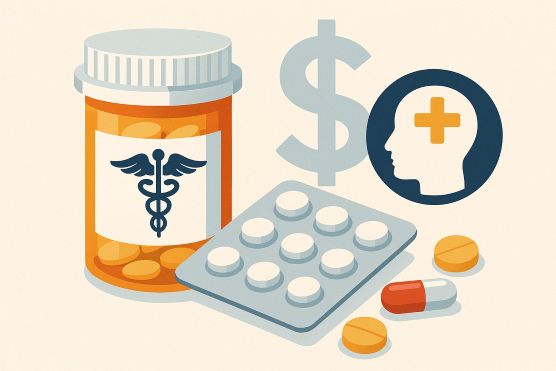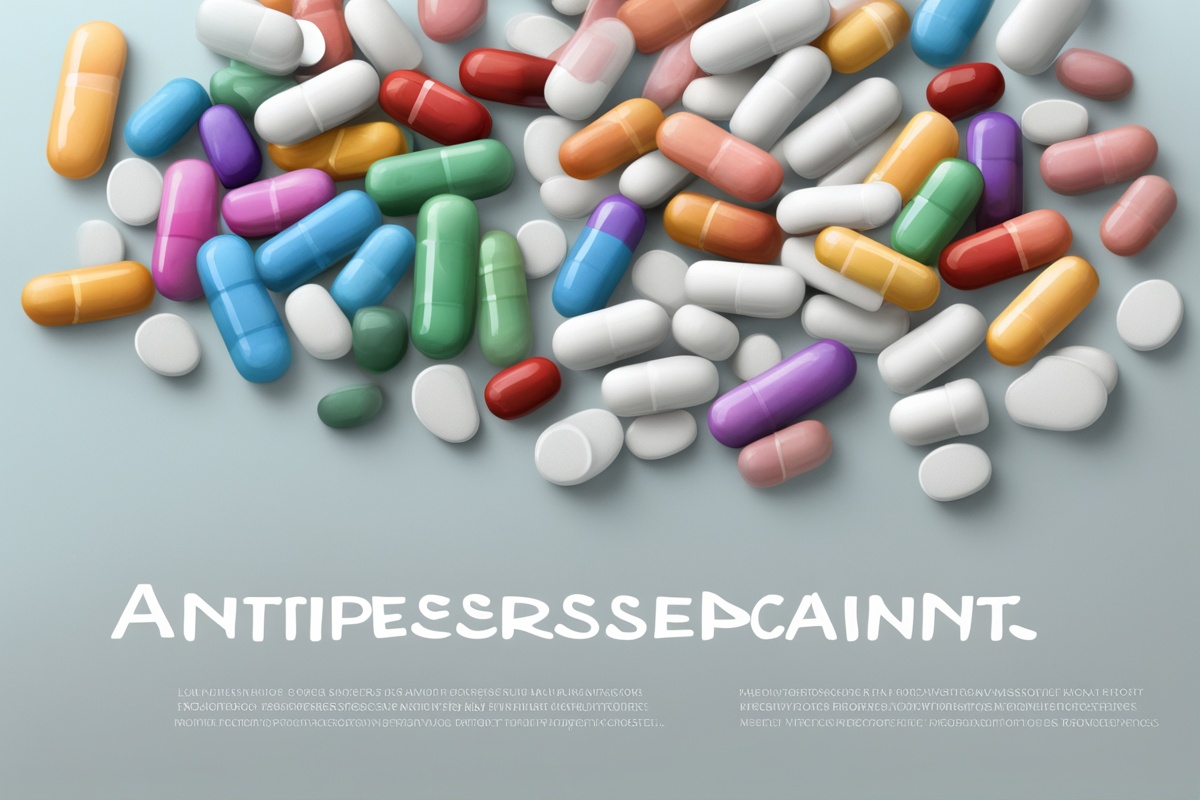Mood disorders, such as depression and bipolar disorder, affect millions of people worldwide, impacting daily life and overall well-being. Finding the right treatment can be a transformative journey, and this guide to mood disorder treatments aims to provide clarity on the options available. From understanding various medications to exploring cost-effective solutions, this post offers a detailed look at managing these conditions. Whether you’re a patient or a caregiver, having accurate information is crucial for making informed decisions about mental health care. Let’s dive into the essentials of navigating treatment options.
This content is for informational purposes only; consult a professional.
Key Aspects of Antidepressants
Antidepressants are a cornerstone in managing mood disorders, offering relief from symptoms like persistent sadness, anxiety, and lack of energy. These medications work by balancing chemicals in the brain, such as serotonin and norepinephrine, which influence mood and emotional responses. There are several classes of antidepressants, including Selective Serotonin Reuptake Inhibitors (SSRIs), Serotonin-Norepinephrine Reuptake Inhibitors (SNRIs), and Tricyclic Antidepressants (TCAs), each with unique mechanisms and side effect profiles. Understanding these differences is vital for tailoring treatment to individual needs, often in consultation with a healthcare provider.
Beyond their primary function, antidepressants can vary in terms of dosage, duration of effect, and potential interactions with other medications. For instance, SSRIs are often the first line of treatment due to their relatively mild side effects. Patients might start with a low dose, which is gradually adjusted based on response and tolerance. It’s also worth noting that finding the right medication may involve some trial and error, as responses can differ widely. For more on related mental health solutions, check out Cost-Effective Mental Health Medications.
Benefits of Understanding Mood Disorder Treatments
Having a solid grasp of the guide to mood disorder treatments can empower individuals to take control of their mental health journey. Knowledge about different medications, their effects, and potential challenges helps in setting realistic expectations and fostering open communication with healthcare providers. This understanding can also reduce stigma and anxiety around starting treatment, as patients become more aware of what to anticipate, such as the time it might take for medications to show results—often several weeks.
Moreover, being informed allows individuals to explore options like affordable SSRIs, which can make treatment more accessible without compromising quality. This is particularly important for long-term management, where costs can add up. By understanding the landscape of treatments, patients can also ask targeted questions during medical consultations, ensuring their specific needs are addressed. Curious about broader medication affordability? See Affordable Pain Relief Options Explored.
Common Questions About Cost Saving Drugs
When it comes to managing mood disorders, cost is often a significant concern. Many patients ask, “How can I access cost saving drugs without sacrificing effectiveness?” The answer lies in exploring generic versions of branded medications, which offer the same active ingredients at a lower price point. Additionally, discussing financial constraints with healthcare providers can lead to alternative prescriptions or assistance programs that reduce out-of-pocket expenses.
Another frequent question is about the safety and reliability of generics. It’s important to know that generic antidepressants must meet strict regulatory standards to ensure they are as effective as their branded counterparts. Patients can also look into pharmacy discount programs or bulk purchasing options for further savings. For related insights on managing medication costs, visit Managing Blood Pressure Affordably.
How to Navigate Treatment Options for Mood Disorders
Navigating the guide to mood disorder treatments can feel overwhelming, but breaking it down into manageable steps can simplify the process. Picture a user exploring various options, feeling unsure where to start—this is a common scenario. The key is to approach treatment systematically, ensuring that decisions are informed and personalized. How does a guide to mood disorder treatments help? It provides a roadmap to understanding what works best for your unique situation.
Here are actionable steps to help you get started:
- Consult a healthcare provider to discuss symptoms and medical history for a tailored diagnosis.
- Research different classes of medications, such as SSRIs or SNRIs, to understand their benefits and side effects.
- Ask about generic antidepressants to keep costs manageable while maintaining efficacy.
- Monitor and report any side effects or lack of improvement to adjust treatment as needed.
- Explore support resources, like therapy or support groups, to complement medication.
For additional resources, check out Affordable Antibiotics for Common Infections.
Core Concepts of Affordable Mental Health Solutions
Accessing affordable mental health solutions, including options like affordable SSRIs, is a critical aspect of managing mood disorders. The rising cost of healthcare has made it essential to explore ways to reduce expenses without compromising on care. One core concept is understanding the role of generic antidepressants, which are often significantly cheaper than branded versions but deliver comparable results. Patients should also be aware of patient assistance programs offered by pharmaceutical companies, which can provide medications at reduced or no cost based on eligibility.
Another important idea is leveraging community resources, such as local clinics or online platforms, to find deals on prescriptions. Pharmacies may also offer price matching or discount cards that lower the cost of essential drugs. Staying proactive by comparing prices and discussing alternatives with a doctor can make a big difference. For further reading on cost-effective strategies, explore Cost-Effective Mental Health Medications.
Here are some additional tips for managing costs:
- Check for insurance coverage specifics on mental health medications.
- Inquire about 90-day supplies to reduce frequent refill costs.
- Use online tools to compare pharmacy prices in your area.
References
American Psychiatric Association. (2020). *What are antidepressants?* Retrieved from https://www.psychiatry.org/patients-families/depression/what-are-antidepressants
National Institute of Mental Health. (2021). *Mental health medications.* Retrieved from https://www.nimh.nih.gov/health/topics/mental-health-medications




